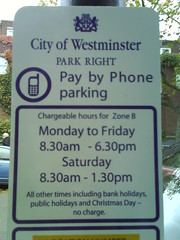In the recent US Presidential Election, it was said by the Democrats that a vote for John McCain would be a vote for another term for Bush. More precisely, it would be a vote for a fourth term for the Bush Agenda. Barak Obama campaigned on the theme of change – change in Washington, change to the political elite in the US, a new broom sweeping clean. Strangely enough, this was a theme that we picked up in our 2007 scenario ‘A Future Worth Building 2005-2025’ (see scenario), which is starting to look like a road map for the immediate future.
In the scenario, we picked up the desire of the US Electorate for a change from the tired policies of the Bush and Clinton eras. It is a desire for something that is truly new. In our scenario, we felt that mainstream US Politics would be unable to generate such a President, so we wrote in an outsider. Our President was a Congressman from Iowa rather than a Senator from Illinois, but this is beside the point. The main forces affecting the US in the scenario are broadly similar to those affecting the US today.
Reviewing the piece, we have been proven right about the precarious nature of the US economy, but we have been completely wrong in the effects of it. We had hoped for a soft landing, whereas the hard landing that we feared has come to pass. The US is still finding it difficult to engage its NATO allies in the War in Afghanistan, and the critical issues over the fate of Guantanamo Bay and the International Criminal Court have yet to be resolved. It is worth remembering that our scenarios are not forecasts of the future, but sets of future states that the world may play into. This particular scenario was an attempt at examining how the US could achieve a ‘good’ outcome in the world by 2025. It has, inadvertently, also become a standard by which the actual new administration could be judged.
Two factors have become apparent so far. The first is that a Presidential Candidate who is an outsider also lacks the key policy infrastructure to form an effective government. For this reason, the newly forming Obama Administration is becoming packed with Clintonistas. The appointments made so far (see updates) contain a sufficient number of personnel who served in the Clinton administrations for this to be considered a Clinton third term. And this is before we know whether or not Hillary Clinton is to be the new Secretary of State.
The second factor that is becoming evident is that President Elect Obama could hardly be called a ‘man of action’. Setting aside his delay in naming his Administration, his impact on the G20 meeting was minimal at a time when the world economy is in need of decisive action. To put off meeting to discuss international collaboration for five months is not really an effective policy response. It almost appears to indicate that President Elect Obama wasn’t really prepared for actually winning the election.
The world is accustomed to President Bush going AWOL on the job – his excuse is that he isn’t that good at it – but a great deal more is expected around the world from President Elect Obama. For example, in The Africa Report (see web site) Prime Minister Odinga of Kenya is reported as wanting “Africa to receive more attention as a place for investment than as a humanitarian case”. One hopes that this weight of expectation, both inside the US and more generally around the world, is not to be disappointed.
It does, however, create an immediate problem. If the US is unwilling to address the international dimensions of the global economic crisis, who is? Interestingly enough, Europe has stepped forward to fill the policy void. An unlikely combination of Brown (the thinker), Sarkozy (the doer), and Merkel (the sense of proportion) has arisen to find a way out of our current economic difficulties. The danger for America is that, by the time the G20 meets again in April, the initiative will have been lost to the EU nations for effective economic policy formation. This hardly sounds like restoring America’s place in the world.
And that brings us to the heart of the matter. Does it make a difference who won the US Presidential Election? The US economy is heavily influenced by overseas factors – particularly overseas investment flows. US foreign policy is bounded by what the key allies of America will or will not do to advance the Washington Agenda. Neither the Clinton nor the Bush Administrations did a great deal to reverse these long term trends. Both Administrations have held onto a paradigm that is out of step with the reality of global affairs.
If Obama is serious about change, then one has to ask why so many of yesterday’s tired and failed policies are being revived. It could be that the newly forming Administration knows nothing else. The appointment of Robert Gates to the Obama Cabinet suggests that there has been no choice at all in the recent election – we have both a Bush fourth term and a Clinton third term at the same time.
So much for change!
© The European Futures Observatory 2008
We are organising a roundtable meeting in March 2009 to examine how ‘The New Normal’ might be structured in the years to come. The meeting will be in London and aims to develop and publish ‘A manifesto for the G20’ ahead of the meeting of the G20 in London in April 2009 in an attempt to introduce some futures thinking to the policy debate. If you would like to be involved in the roundtable, or if you would like to be informed of developments, please let me know and I will keep you in touch.

